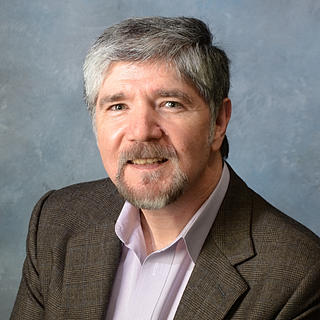WHAT IF THE ULTIMATE QUESTION HAS BEEN ANSWERED?
- J.D. Cortese
- May 18, 2022
- 2 min read

One of the most famous short stories in the Science Fiction universe is The Last Question by Isaac Azimov [1,2]. A self-conscious computer is asked how to reverse the Second Law of Thermodynamics, and—to jump to the end of the story—it takes that much-evolved computer until after all humans have disappeared and the cosmos is ending to get an answer. And then it says, “Let there be light.” Together with Nightfall, it was apparently so striking to readers that Azimov would answer with its title any query about a work of him someone liked but couldn’t remember.
The idea that one day a computer would gain enough power to figure out how to create a universe (and perhaps become its god) was visionary back in 1956, when computers were fed punch cards, and our personal computers were a crazy dream beyond even flying cars and humans populating the galaxy.
I have been one of those who could never shake off that story. And now, I live in a time when computers are all around us, completely immersive virtual realities are visible on the technical horizon [3], and the concept behind The Matrix movie is so commonplace as not to be an original idea for a book. One day, I decided to ask my own questions.
WHAT IF, somewhere in the cosmos, a civilization got a computer to answer that question?
WHAT IF, in our possibly infinite cosmos, one of the alternatives is that a computer could become a god?
This is the underlying theme of Fences of The Light, my third novel.
When answered in the affirmative, these questions lead to some novel ideas about the future of AI (artificial intelligence) and the power of computers. There will be another entry in this series to discuss these possibilities, but suffice to say that …
… In an infinite universe, if something is possible, it has already happened.
Fences of The Light envisions a new ruler of the universe, a rogue computer that’s rebuilding the entirety of what exists. It is a view that might shock believers and non-believers alike. If you are an atheist, it provides a new philosophical proof that a God-like entity might exist—at least, somewhere in the cosmos. If you are a believer, it’s possible that we are all praying to the wrong Creator.
My main character, Lucien Strand, was a deep believer and has now become an agnostic.
Sometimes, he is both at the same time.
He is thrown in the middle of this cosmic mystery, and the answers he finds surprise even the author.
[1] “The Last Question” by Isaac Azimov was published in the November 1956 issue of Science Fiction Quarterly, Columbia Publications. [2] Also check its Wikipedia entry at https://en.wikipedia.org/wiki/The_Last_Question [3] David J. Chalmers (2022) “Reality+: Virtual Worlds and the Problems of Philosophy.” W.W. Norton & Company








Comments